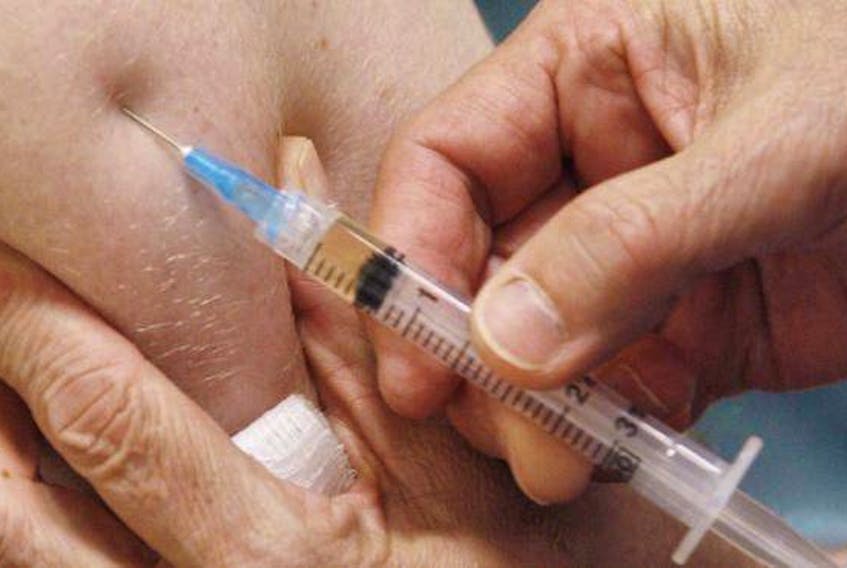A hundred years ago, infectious disease was the leading cause of death worldwide, but today in Canada it accounts for fewer than five per cent of deaths.
Dr. Heather Morrison, P.E.I.’s chief public health officer, said the reason is due to immunization programs across the country.

“We know immunization in Canada has saved more lives than any other health intervention we’ve done in the last 50 years,” she said, adding it’s one of the “most important and cost-effective” public health interventions available.
As Island children settle into another school year, parents will soon be faced with whether or not to have their children vaccinated.
Morrison said the number of people who opt out of receiving vaccines is low across the province, as P.E.I.’s rates of immunization uptake in children “compares very favourably” to the rest of the country.
“Before children enter school, the Island’s immunization rate across the board is 94 per cent, which is very good.”
When looking at the statistics from the Island and the rest of Canada, it is easy to forget that years ago there were many illnesses and deaths related to vaccine-preventable diseases, but Morrison encourages the public to keep up with their shots.
“Now that we don’t see it as much, it’s probably even more important that we don’t become complacent.”
At a glance
- For information on adult immunizations, visit Princeedwardisland.ca/en/information/adult-immunizations or Canimmunize.ca/en/pei-assessment-tool
- For information on children immunizations, visit:
Princeedwardisland.ca/en/information/health-and-wellness/childhood-immunizations
In parts of the world where some of the immunization rates have dropped off, outbreaks of diseases that were seemingly under control have made a return, such as the recent outbreak of measles in Europe.
According to the World Health Organization, there have been over 41,000 cases of measles reported in Europe so far this year.
With the Island’s impressive rate of immunization, however, P.E.I. hasn’t seen high rates of disease, Morrison said.
“For instance, we’ve only had two cases of measles in the province in the last 10 years, and both of those were travel-related.”
Vaccinations aren’t administered only to protect the person receiving them, but also to protect the community. Babies, for example, can’t get the MMR vaccine, which protects against mumps, measles and rubella, until they are one year of age. So, in order to help protect them, everyone around them should get immunized.
“If the majority of people in a community get vaccinated it reduces the chance of disease spreading in the community.”
While it’s important for children to become immunized, Morrison said a lot of work is now being done to educate the public on the importance of adult immunization.
“We have more adults who get sick of vaccine-preventable diseases in this country now than we do our children,” she said. “Because of travel, because we know some of the vaccines protections wane over time, there are vaccines as adults we should also be getting.”
Morrison said for those who are hesitant about immunization, to keep one thing in mind: “The risk of the disease is always much greater than any risk of the vaccine. That’s a good way to think about it.”









